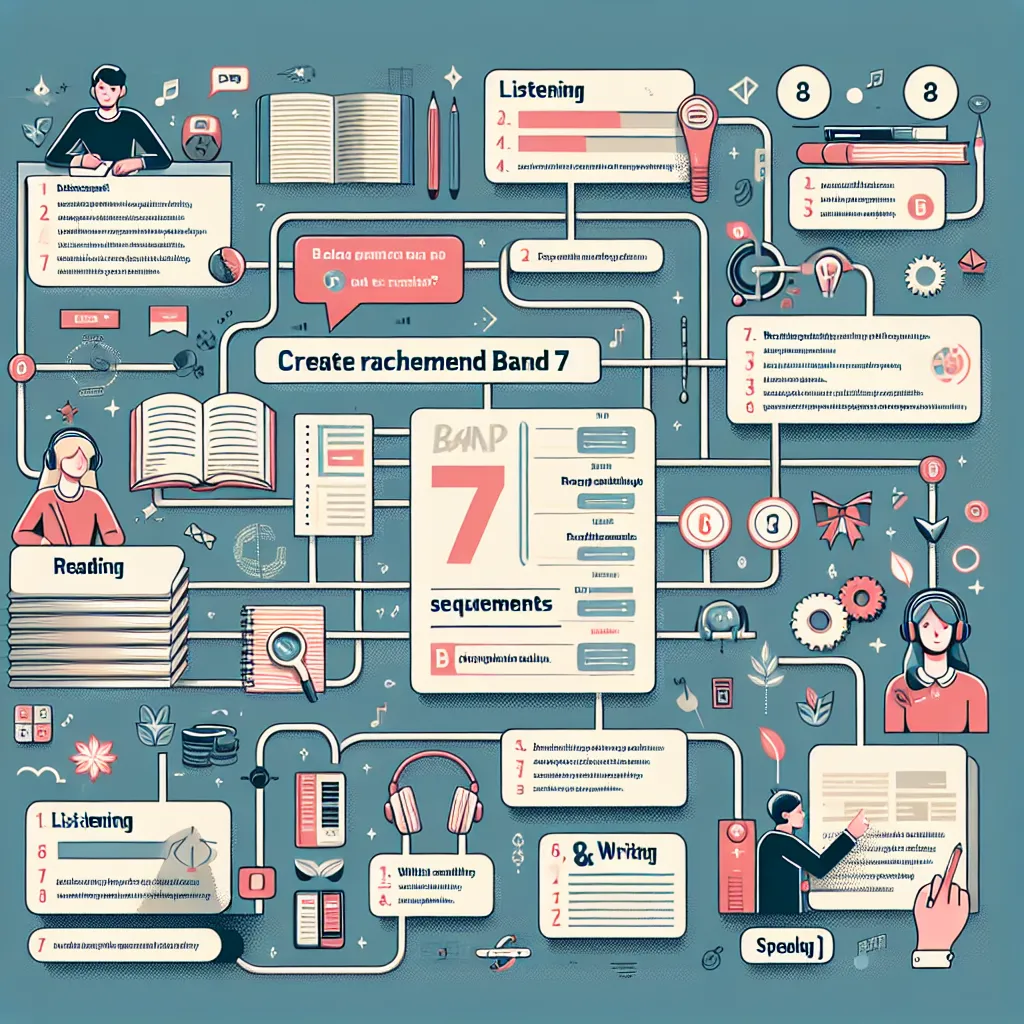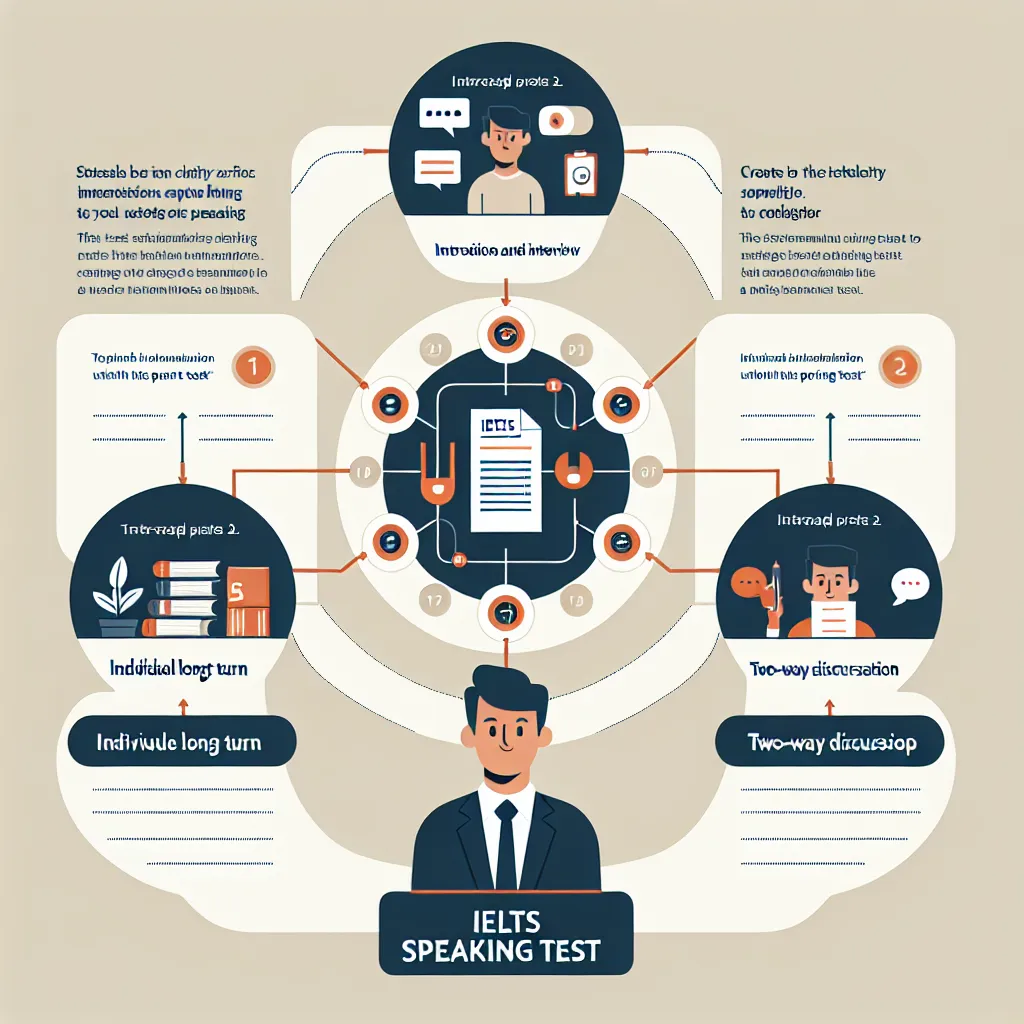Are you gearing up for the IELTS Speaking test? You’re not alone in seeking the most effective strategies to excel in this crucial component of the IELTS exam. In this comprehensive guide, we’ll explore the best ways to prepare for IELTS Speaking, providing you with valuable insights and practical tips to boost your confidence and performance.
Understanding the IELTS Speaking Test
Before diving into preparation strategies, it’s essential to understand the structure of the IELTS Speaking test. This test consists of three parts:
- Part 1: Introduction and Interview (4-5 minutes)
- Part 2: Individual Long Turn (3-4 minutes)
- Part 3: Two-way Discussion (4-5 minutes)
Knowing what to expect in each part will help you tailor your preparation more effectively.
 IELTS Speaking Test Structure
IELTS Speaking Test Structure
Best Ways to Prepare for IELTS Speaking
1. Expand Your Vocabulary
A rich vocabulary is crucial for expressing yourself clearly and precisely during the IELTS Speaking test.
- Use vocabulary building apps: Applications like Quizlet or Anki can help you learn and retain new words effectively.
- Read widely: Expose yourself to various topics by reading newspapers, magazines, and books in English.
- Learn topic-specific vocabulary: Focus on vocabulary related to common IELTS topics such as education, environment, technology, and culture.
2. Practice Speaking Regularly
Consistent practice is key to improving your speaking skills.
- Find a speaking partner: Practice with a friend, language exchange partner, or tutor.
- Record yourself: Listen to your recordings to identify areas for improvement in pronunciation and fluency.
- Join IELTS speaking groups: Participate in online forums or local meetups dedicated to IELTS preparation.
3. Improve Your Pronunciation
Clear pronunciation is essential for effective communication in the IELTS Speaking test.
- Focus on problematic sounds: Identify and practice sounds that are difficult for speakers of your native language.
- Use pronunciation apps: Tools like ELSA Speak or Google’s Pronunciations can help you perfect your pronunciation.
- Learn connected speech: Practice linking words and using contractions to sound more natural.
4. Develop Your Ideas
The ability to elaborate on your ideas is crucial, especially in Parts 2 and 3 of the test.
- Use the STAR method: Structure your answers using Situation, Task, Action, and Result.
- Practice with sample questions: Familiarize yourself with common IELTS Speaking topics and questions.
- Time yourself: Practice speaking on a topic for 2 minutes to prepare for Part 2 of the test.
5. Work on Fluency and Coherence
Speaking smoothly and coherently is a key assessment criterion in the IELTS Speaking test.
- Use discourse markers: Incorporate phrases like “In my opinion,” “On the other hand,” and “To sum up” to improve coherence.
- Practice paraphrasing: Learn to express ideas in different ways to avoid repetition and hesitation.
- Develop strategies for buying time: Use fillers appropriately when you need a moment to think.
 IELTS Speaking Preparation Techniques
IELTS Speaking Preparation Techniques
6. Familiarize Yourself with the Marking Criteria
Understanding how you’ll be assessed can help you focus your preparation efforts.
- Study the public band descriptors: Familiarize yourself with what examiners are looking for in each band score.
- Take mock tests: Practice with experienced IELTS tutors who can provide feedback based on the official criteria.
- Self-assess: Record your practice sessions and evaluate them using the IELTS Speaking band descriptors.
7. Manage Test Anxiety
Feeling nervous is normal, but excessive anxiety can hinder your performance.
- Practice relaxation techniques: Learn deep breathing exercises or meditation to calm your nerves.
- Visualize success: Imagine yourself performing well in the speaking test.
- Prepare for test day: Familiarize yourself with the test center location and requirements to reduce stress on the day of the exam.
8. Immerse Yourself in English
Surrounding yourself with English can significantly improve your speaking skills.
- Watch English-language media: Enjoy movies, TV shows, and YouTube videos in English.
- Listen to podcasts: Choose podcasts on topics you’re interested in to improve your listening and speaking skills simultaneously.
- Think in English: Practice formulating your thoughts in English throughout the day.
Important Tips to Remember
- Be authentic: Speak naturally and express your genuine opinions.
- Stay on topic: Make sure your answers are relevant to the questions asked.
- Use a range of grammatical structures: Demonstrate your language proficiency by using various sentence structures.
- Don’t memorize answers: Examiners can easily spot rehearsed responses, which may lower your score.
- Ask for clarification: If you don’t understand a question, politely ask the examiner to repeat or rephrase it.
Next Steps in Your IELTS Speaking Preparation
Now that you’re equipped with these strategies, it’s time to put them into practice:
- Create a study schedule that incorporates regular speaking practice.
- Start building your vocabulary with topic-specific word lists.
- Record yourself answering sample IELTS Speaking questions and analyze your performance.
- Seek feedback from native English speakers or IELTS tutors to identify areas for improvement.
- Take a mock IELTS Speaking test to gauge your current level and track your progress.
Remember, consistent practice and a positive attitude are key to success in the IELTS Speaking test. By following these best practices and dedicating time to your preparation, you’ll be well on your way to achieving your desired band score.
Keep practicing, stay motivated, and don’t hesitate to seek help when needed. Good luck with your IELTS Speaking preparation!




